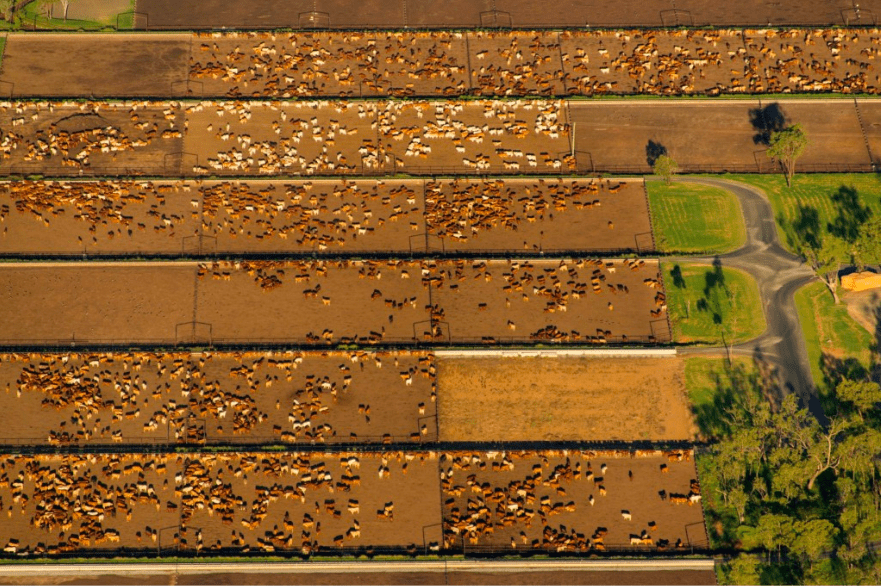Participants in a webinar being staged today heard results from a feedlot trial where the feed additive Bovaer was found to reduce methane in feedlot cattle by up to 90 percent.
Meat & Livestock Australia recently tested the use of Bovaer, a feed additive developed by DSM to reduce enteric methane emissions, in Australian feedlot operations.
Beef Central first wrote about the active ingredient in the product in this earlier article published back in 2019.
Bovaer is a Dutch-developed feed additive designed to inhibit the last step of methane production in ruminant animals. Its active ingredient is a compound called 3-NOP, which breaks down to natural compounds during the digestion process. The additive has nothing to do with recent methane mitigation studies using an additive produced from asparagopsis seaweed.
The Bovaer trial was recently completed at the University of New England, testing the product under different inclusion rates.
Methane reductions of 90pc were observed, with no negative effects on animal performance. The results were presented today at a webinar “Moving towards carbon neutrality” hosted by Australian Lot Feeders Association.
Building block towards CN30
Australia’s red meat industry has set an ambitious target to be carbon neutral by 2030. To enable the industry to achieve this goal, MLA is investing in research to reduce emissions as part of a broader roadmap to reach Carbon Neutrality by 2030 (CN30).
The feed additive developed by DSM, has been extensively tested abroad, including in feedlots in Alberta and Brazil, and could be an important building block for CN30.
MLA’s feedlot program manager Dr Joe McMeniman said there was increasing industry interest in low footprint products, and MLA was committed to deliver its CN30 ambitions.
“We are therefore happy we can support this type of research, and identify and test new technologies for use in the Australian red meat sector,” he said.
Recently, the product was first tested in an Australian feedlot at the University of New England under supervision of Professor Roger Hegarty. Twenty Angus steers were provided with different rates of Bovaer ranging from 0.5g to 1.25g a day over 112 days in a typical Australian feedlot finisher ration.
At the lowest rate, a methane reduction of 60pc was observed, whereas the highest inclusion rate reduced methane emissions by 90pc.
Steers in the study had average daily gain and feed conversion ratios in line with industry expectations.
With Bovaer treatment, steers performing as good or better than control steers in these performance parameters.
Professor Hegarty said researchers had seen research about Bovaer overseas and were curious how the product would perform under Australian conditions.
“We are excited about the strong results, and will continue to research how to bring this product also to more extensive operations,” he said.
DSM program director Mark van Nieuwland said his company looked forward to bringing Bovaer to market in Australia in the near term, and the exciting results from Australian trials were an important building block in that journey.
The full results of the research will be published in a scientific peer reviewed journal in coming months. Planning is underway for further scaled trials with the support of MLA, as well as discussion on inclusion in carbon accounting methodologies and sustainability frameworks.
DSM is preparing for a launch in Australia, as of one of the first markets globally to have access to Bovaer.
Bovaer is the first product developed through DSM’s Project Clean Cow, a ten-year research and development focus launched as part of the company’s sustainability doctrine. The product in 2019 was featured by the World Resources Institute as one of the ten global break-through technologies that can help to feed the world sustainably, DSM said in Beef Central’s previous article.
New Zealand dairy co-operative Fonterra recently signed a collaboration agreement with Royal DSM to accelerate the transition to lower methane agriculture in New Zealand.

